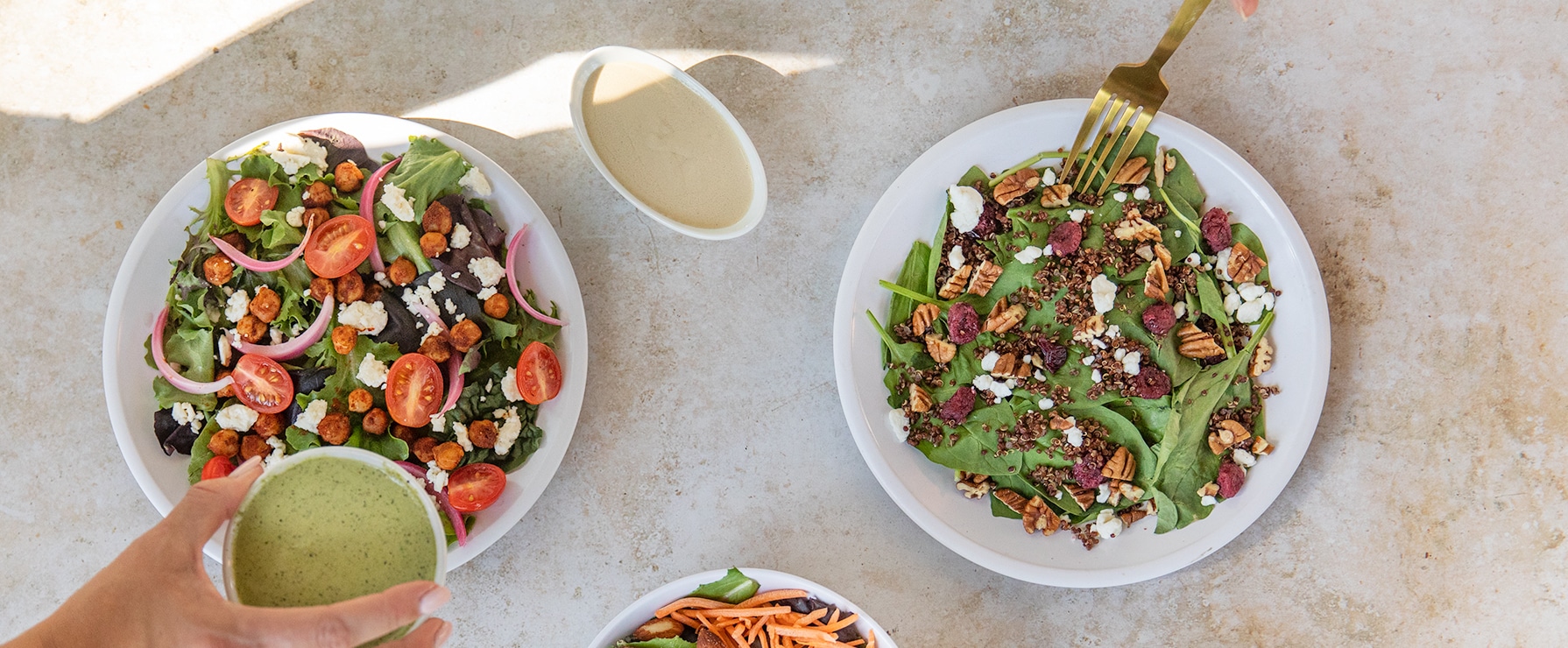There’s nothing more personal, more complex, and more perplexing than your nutritional standards. In my own life, I tell people I’m a vegetarian, but that’s true because I’m a modified pescetarian with a vegan mix…or a flexitarian. Pescetarian means that I allow fish in my diet at times, and a flexitarian because I keep eggs and cheese in my diet but still don’t imbibe in any other dairy. (Which sucks because isn’t ice cream just the freaking best?)
But we get this question a lot, so we thought we’d break down what the typical vegetarian diet includes.
What Vegetarians Do and Don’t Eat
According to the Academy of Nutrition and Dietetics, the vegetarian diet abstains from flesh-foods and may or may not include egg or dairy products.
It’s important to note that there are many different types of vegetarians out there. Some eat meat sometimes, and some don’t. Ever. Some eat eggs, and some don’t. Some eat sweeteners of all kinds, and some don’t eat honey. So let’s take a look at what each group eats:
- Lacto-ovo-vegetarian – NO to fish, poultry, meat. YES, to eggs and dairy products.
- Lacto-vegetarian – NO to fish, poultry, meat, and eggs. YES to dairy products.
- Ovo-vegetarian – NO to fish, poultry, meat, and dairy products. YES, to eggs.
- Pescatarian – NO to poultry and meat. YES to fish, and some eggs and dairy products.
- Vegan – NO to fish, poultry, meat, eggs, dairy products, and anything else that comes from an animal — including honey.
- Flexitarian – SOMETIMES YES, SOMETIMES NO to fish, poultry, meat, eggs, and dairy products.
- Raw vegan – This is a diet composed of vegetables, fruit, nuts and seeds, legumes, and sprouted grains. But all of it avoids uncooked foods as much as possible, anywhere from 75-100 percent of the time.
Why Go Vegetarian at All?
Roughly 3.3 percent of all American adults are vegan or vegetarian, according to the Academy of Nutrition and Dietetics. That might not seem like many, but the numbers are increasing. And the reasons are varied; you may have empathy for animals, food allergies, food sensitivities, or have another reason altogether. Going vegetarian may also be good for your health, too.
Spending any amount of time going vegetarian or just eating more plants in general—even for a short period of time—has been associated with a lower risk of heart disease, lower cholesterol levels, and decreased blood pressure, as well as lower instances of type 2 diabetes. This is likely due to an increased intake of vegetables, fruits, and an overall limiting of processed foods. If an omnivorous diet is more your speed, you can still enjoy these benefits by eating ample veggies!
But, to be fair, this is a correlation, not causation.
If you’re considering going vegetarian regardless of the type, it’s important to note that you will need to take supplements with vitamins D, B-12, zinc, calcium, iron, and omega-3 fatty acids, as many vegetarians are not able to get those nutrients properly in their daily diets.
What do you think? Are you considering going vegetarian? Let us know in the comments!





Leave a Reply
No Comments